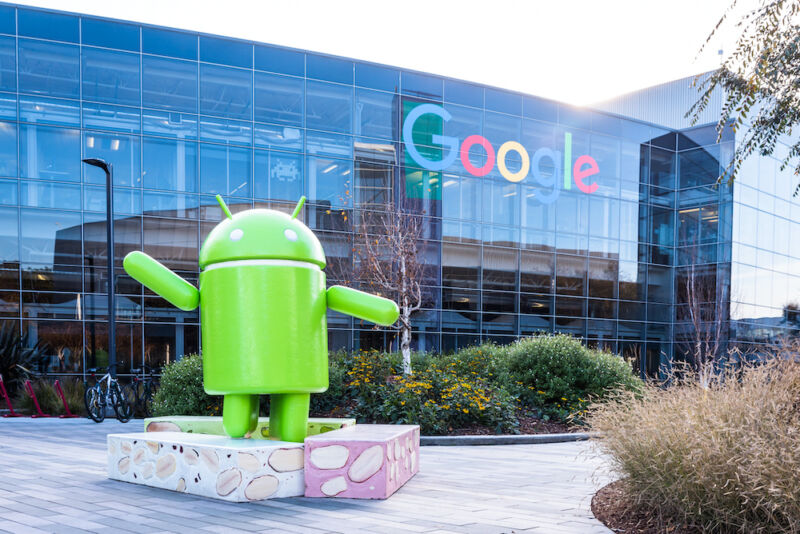Taking another swing at it —
The Google Play System update was pulled for breaking device storage, crashing apps.

Enlarge / Google HQ.
We’re a third of the way through February, but Android’s January 2024 Google Play System update is just now rolling out. The now-infamous update originally rolled out at the beginning of January but was pulled after it started locking users out of their phone’s local storage. Apparently, the update has been fixed and is rolling back out to devices. We were able to get it to install this morning.
The first time this update went out, some devices with multiple user accounts or work profiles experienced what Google described as “multiple apps crashing, screenshots not saving, and external storage working inconsistently.” Users described phones affected by the issue as “unusable.” Google eventually posted instructions for a manual fix on February 1, about two weeks after the update first started rolling out. These instructions were complicated, though, involving a manual process where you had to enable developer mode, download the developer tools, plug in your phone, and type in the right command prompts to delete buggy packages manually. As part of that February 1 post, Google seemed to promise to release an automated fix someday, but it has been nine days now.
Google skipped the December Play System update due to the holiday break, so this “January” update in February is the first Play System update since November. Play System updates, if you aren’t aware, are a fairly new Android update format that is separate from the OS-level system and security updates. Google created a new, super-privileged code package called an APEX Module that can house core system components like the Android RunTime or media subsystem. Google distributes these through the Play Store, allowing it to update core Android components directly without needing third-party manufacturers to do any work. It sounds great on paper, provided the updates work.
The update was the second time in four months that an automatic Android update broke some Pixel phones (for the record, one was a full OS update, the other was a Play System update). Both issues resulted in downtimes measured in weeks and “fixes” that demanded either developer-level command line work from novice users or caused data loss. Google’s track record these last four months suggests 1) it doesn’t have a reliable rollback method for buggy updates, 2) it doesn’t have adequate testing for its updates, and 3) it can’t quickly stop or repair damage caused by buggy updates. Those issues all make updating a Pixel phone a scary proposition lately.